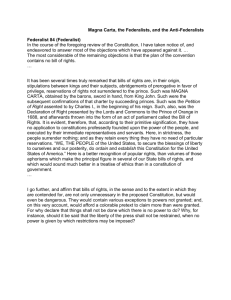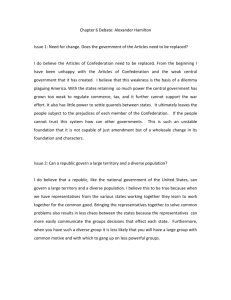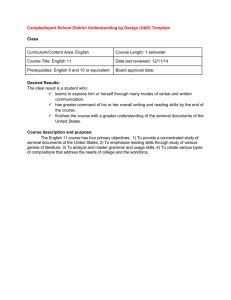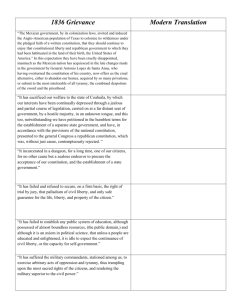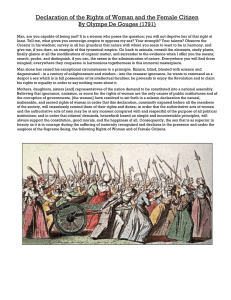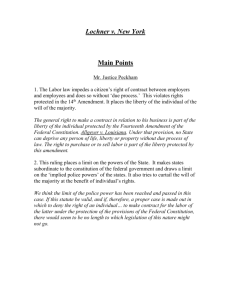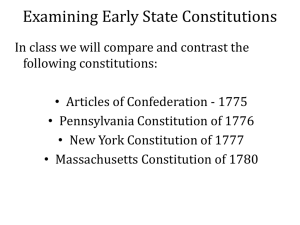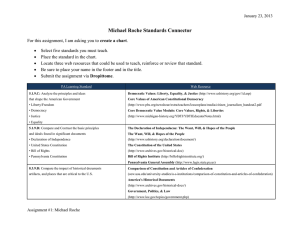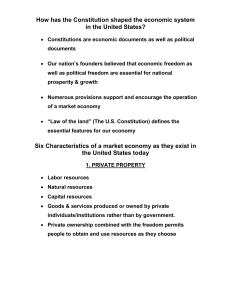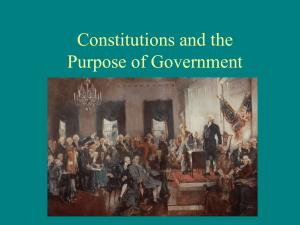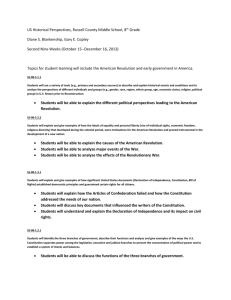1788 - Anti-Federalist #84 - West Morris Central High School
advertisement
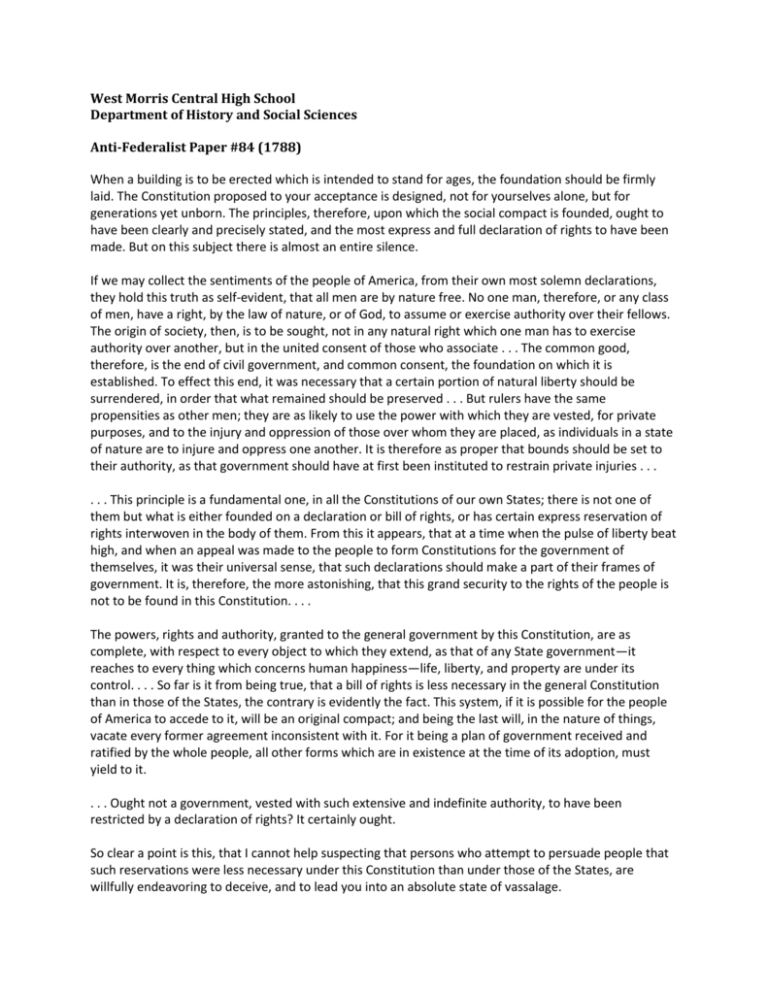
West Morris Central High School Department of History and Social Sciences Anti-Federalist Paper #84 (1788) When a building is to be erected which is intended to stand for ages, the foundation should be firmly laid. The Constitution proposed to your acceptance is designed, not for yourselves alone, but for generations yet unborn. The principles, therefore, upon which the social compact is founded, ought to have been clearly and precisely stated, and the most express and full declaration of rights to have been made. But on this subject there is almost an entire silence. If we may collect the sentiments of the people of America, from their own most solemn declarations, they hold this truth as self-evident, that all men are by nature free. No one man, therefore, or any class of men, have a right, by the law of nature, or of God, to assume or exercise authority over their fellows. The origin of society, then, is to be sought, not in any natural right which one man has to exercise authority over another, but in the united consent of those who associate . . . The common good, therefore, is the end of civil government, and common consent, the foundation on which it is established. To effect this end, it was necessary that a certain portion of natural liberty should be surrendered, in order that what remained should be preserved . . . But rulers have the same propensities as other men; they are as likely to use the power with which they are vested, for private purposes, and to the injury and oppression of those over whom they are placed, as individuals in a state of nature are to injure and oppress one another. It is therefore as proper that bounds should be set to their authority, as that government should have at first been instituted to restrain private injuries . . . . . . This principle is a fundamental one, in all the Constitutions of our own States; there is not one of them but what is either founded on a declaration or bill of rights, or has certain express reservation of rights interwoven in the body of them. From this it appears, that at a time when the pulse of liberty beat high, and when an appeal was made to the people to form Constitutions for the government of themselves, it was their universal sense, that such declarations should make a part of their frames of government. It is, therefore, the more astonishing, that this grand security to the rights of the people is not to be found in this Constitution. . . . The powers, rights and authority, granted to the general government by this Constitution, are as complete, with respect to every object to which they extend, as that of any State government—it reaches to every thing which concerns human happiness—life, liberty, and property are under its control. . . . So far is it from being true, that a bill of rights is less necessary in the general Constitution than in those of the States, the contrary is evidently the fact. This system, if it is possible for the people of America to accede to it, will be an original compact; and being the last will, in the nature of things, vacate every former agreement inconsistent with it. For it being a plan of government received and ratified by the whole people, all other forms which are in existence at the time of its adoption, must yield to it. . . . Ought not a government, vested with such extensive and indefinite authority, to have been restricted by a declaration of rights? It certainly ought. So clear a point is this, that I cannot help suspecting that persons who attempt to persuade people that such reservations were less necessary under this Constitution than under those of the States, are willfully endeavoring to deceive, and to lead you into an absolute state of vassalage.
